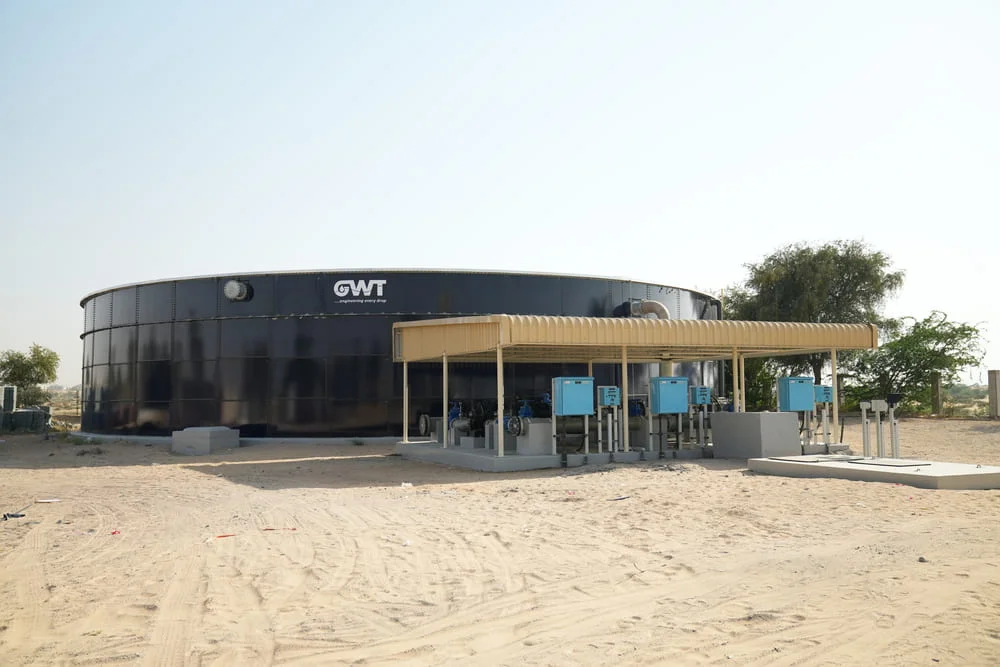The Rise of Automation in Sewage Treatment: How Technology is Transforming the Industry
For many years, GWT’s Sewage treatment plant Dubai has been the unsung heroes of our neighbourhoods. By cleaning wastewater before it goes back into the ecosystem, these engineering wonders are very important for protecting public health and the health of the environment. Traditional methods of treating sewage, which depend on manual work and human supervision, are changing in big ways, though. Automation is bringing about a new era for sewage treatment plants, one that will be more cost-effective, more efficient, and better for the environment.
From Manual Labor to Digital Revolution: Automation Takes Center Stage
There are no longer only physical processes and regular checkups that are used to treat sewage. Automation, which is made possible by new technologies, is quickly changing the business. The core of the Internet of Things (IoT) is made up of sensor networks, which are being carefully placed all over sewage treatment plants. These ubiquitous monitors constantly collect real-time information on a number of factors, such as the flow of water, the levels of chemicals, and the amount of sludge in the treatment stages. Then, this information is sent electronically to a central hub, which creates a full picture of the whole treatment process.

Imagine a Sewage treatment plant Dubai busy utilizing this technology. There would be sensors built into the complex network of pipes and tanks that would constantly watch the flow of wastewater. This would help workers spot problems before they get worse. This real-time info lets changes be made ahead of time, which ensures peak performance and stops problems from happening.
Also, artificial intelligence (AI) is becoming known as the mastermind behind the change in automation. AI programmes can not only find patterns and trends in the huge amount of data that the sensor network collects, but they can also predict problems that might happen. This helps plant managers plan ahead for when equipment will break down, figure out the best way to dose chemicals for better treatment, and even guess how the makeup of wastewater will change with the seasons.
Unveiling the Benefits: A Brighter Future for Sewage Treatment
Integrating automation in Sewage treatment plant Dubai opens up a world of benefits for both the plants’ smooth running and the environment we live in.
Better efficiency and better use of resources
The whole process of treating waste is streamlined by automation, which makes it much more efficient. Once done by hand, repetitive tasks are now done automatically by automated systems. This frees up people to work on more difficult tasks and make smart decisions. AI-powered optimisation programmes can also finetune the amount of chemicals used and the amount of energy used, which saves the plant a lot of money.
As more sewage treatment plants Dubai adopt automation, they can expect to need fewer people to do routine jobs. This makes it possible to move skilled workers to jobs that need human knowledge, like maintaining and analysing systems. AI can also figure out the best way to use chemicals in the cleaning process, which cuts down on waste and costs.
Environmental Stewardship: A Cleaner Future for Our Waters
When it comes to the environment, automation in sewage cleaning is nothing short of revolutionary. Automation helps keep things from spilling and breaking down by letting you watch things in real time and plan maintenance ahead of time. This means that the water that leaves the treatment plant is cleaner before it goes back into the world. Artificial intelligence (AI)-powered optimisation can also help the plant use less energy generally, which lowers its carbon footprint.
Imagine a future where Sewage treatment plant Dubai can use technology to not only treat wastewater more efficiently but also make it much less harmful to the environment. Real-time tracking and planned maintenance make it less likely that equipment will break down or spill chemicals into the environment. Optimising energy use with AI can also help the plant leave a smaller carbon footprint, which will help make the future better and more sustainable.
To sum up, the rise of technology is changing the sewage treatment business in a big way. GWT’s Sewage treatment plant Dubai is becoming smart ecosystems by using sensor networks, IoT, and AI. This makes the plant run more efficiently, has less of an effect on the environment, and sets the stage for a more sustainable future. As automation keeps getting better, sewage treatment will likely get even better. This will lead to cleaner water and a healthier world for future generations.

